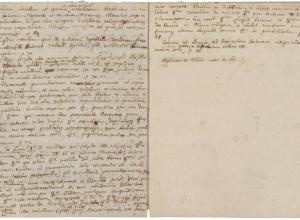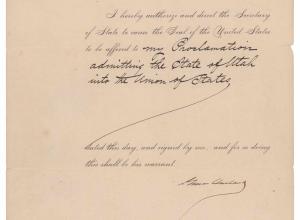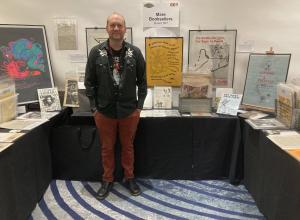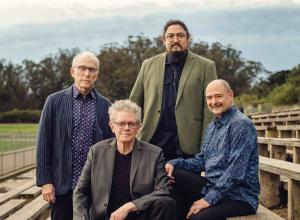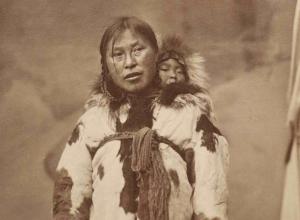Library of Congress Summer Interns Display Collection Treasures
The Library of Congress Junior Fellows Summer Interns today presented more than 100 rare and unique items from 21 collections housed in more than 20 Library divisions. The display provides the opportunity for fellows to discuss the historic significance of the collection items they have researched, processed and—in some cases—unearthed during their 10-week internship.

Examples include:
?? Fifteenth-century German woodcuts, 1474-1500
?? Plan of the Bay of Pensacola and vicinity, manuscript map by Don Vicente Sebastian Pintado, 1815
?? Life mask of Abraham Lincoln by famed sculptor Leonard W. Volk and two photographs of his sculptures of Abraham Lincoln and Stephen A. Douglas from the artist’s copyright registration, July 17, 1876
?? Charles Dana Gibson drawings, Collier’s Weekly, 1905
?? An autographed, first-hand account of Andersonville Prison as remembered by Union veteran Nathaniel Shepard Armstrong Price, 1910
?? Photographs of the IBM Pavilion at the New York World’s Fair with the iconic "egg" structure designed by Eero Saarinen and exhibition space crafted by Charles and Ray Eames, 1964
?? Voting form (in 11 languages) from South Africa’s first multiracial parliamentary election, which resulted in Nelson Mandela becoming South Africa’s first black head of state, 1994
Working under the direction of Library curators and specialists in various divisions, 40 Junior Fellows—selected from more than 1,100 applicants across the country—explored the institution’s unparalleled collections and resources. They were exposed to a broad spectrum of library work: copyright, preservation, reference, access, standards, information management and digital initiatives.
Now in its ninth year, the Junior Fellows Program is made possible through the generosity of the late Mrs. Jefferson Patterson and the James Madison Council, the Library’s private-sector advisory group.
Founded in 1800, the Library of Congress is the nation’s oldest federal cultural institution. The Library seeks to spark imagination and creativity and to further human understanding and wisdom by providing access to knowledge through its magnificent collections, programs and exhibitions. Many of the Library’s rich resources can be accessed through its website at www.loc.gov.






